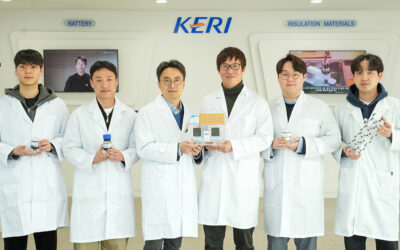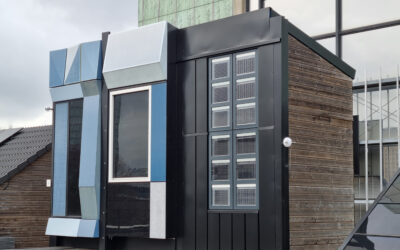Hydrogen, a concentrated energy source that can be stored for long periods and transported over long distances, has emerged as the fuel-of-choice for fuel cells and fuel cell vehicles. Its other advantages are that it can be generated with renewable energy sources, and when used as a fuel the only by-product is hot water – a cycle that is completely CO2-free. Already today, more than 600 billion m³ of hydrogen are consumed worldwide every year. However, only 5% of it is currently produced by electrolysis.
Japan’s Ministry of Economy, Trade and Industry is promoting the adoption of hydrogen. Its guiding policy statement, ‘Basic Hydrogen Strategy,’ targets to industrialize the Power-to-Gas technology for storing surplus renewable energy. The Power-to-gas utilizing hydrogen requires not only the grid balancing function to make the maximum use of fluctuating renewable energy, but also the optimal system operation function based on the forecasting of hydrogen supply and demand.
Toshiba ESS, Tohoku Electric Power Co., Inc. and Iwatani Corporation, with the support of New Energy and Industrial Technology Development Organization (NEDO), are undertaking research to promote greater use of renewable energy in the electricity grid. Aim is to balance supply and demand and process load management, and to realize a new control system that optimizes hydrogen production and supply with demand.
The large-scale hydrogen energy system Fukushima Hydrogen Energy Research Field (FH2R) will operate a 10,000kW class hydrogen production facility that will start operation in 2020. FH2R is aimed to produce and store up to 900 tons of hydrogen a year, using renewable energy. It will use a new control system to coordinate overall operation of the hydrogen energy system, the power grid control system, and the hydrogen demand forecast system, so as to optimize hydrogen production, hydrogen electricity generation and hydrogen gas supply.
According to the consortium, the system will use hydrogen to offset grid loads, and deliver hydrogen to locations in Tohoku and beyond, and will seek to demonstrate the advantages of hydrogen as a solution in grid balancing and as a hydrogen gas supply. Hydrogen will be transported in compressed hydrogen trailers and be supplied to users.

















